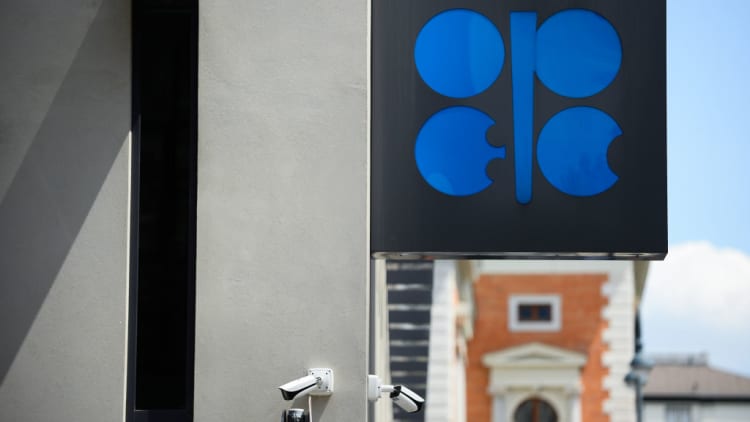
OPEC appeared to be on the brink of raising oil supply on Friday, after de-facto leader Saudi Arabia looked to have convinced arch-rival Iran to cooperate over production policy.
Energy ministers have been laying the groundwork all week for Friday's biannual meeting in Vienna, Austria, where OPEC is expected to ease supply constraints that have been in place since January 2017.
OPEC kingpin Saudi Arabia and non-member Russia have urged major suppliers to ramp up production by about 1 million barrels per day (bpd) after 18 months of tight output controls. The proposal had become a near-consensus among the 14-member group and its allied partners, but Iran has so far been the main barrier to an agreement.
The prospect of the gathering ending without a deal remained a possibility just hours before a final decision is due to be made, with the start of the OPEC meeting having to be pushed back because of last-minute talks between Saudi Arabia and Iran.
'This will not be a very long meeting'
Speaking to reporters in a conference room Friday, Iranian Oil Minister Bijan Zanganeh said that a private discussion with Saudi Arabia's energy minister ahead of the meeting had been successful. He added Tehran would be content with crude prices at around $70 a barrel.
When asked whether OPEC and its allies could reach a deal on Friday, Zanganeh replied: "We are cooking something."
However, Iran — OPEC's third-biggest oil producer — also called on the oil cartel to pressure the U.S. to pump more crude.
President Donald Trump imposed fresh sanctions on Tehran last month, with external observers projecting the country's crude production could fall by about a third by the end of 2018. That means, unlike Saudi Arabia, Iran is not likely to benefit from increased supply.

Speaking ahead of the meeting, Nigeria's Emmanuel Kachikwu told CNBC that while OPEC members were sympathetic towards Iran, the group did not want to mention U.S. sanctions in a statement.
"OPEC isn't a political organization. Everybody pushed back on that," Kachikwu said, before adding he expected Iran would eventually sign up to a deal.
Market overheating fears
Saudi Energy Minister Khalid al-Falih said Friday no-one should expect to see an "immediate flood" of oil coming back onto the market following the meeting. He also warned the world could face a supply deficit of 1.8 million bpd in the second half of 2018 and that it was OPEC's responsibility to alleviate consumers' concerns.
On Friday, al-Falih insisted the overwhelming majority of OPEC and its partners had recommended boosting production by 1 million bpd at a "gradual" pace and on a pro-rata basis.
Industry sources familiar with the oil cartel's deliberations said the actual increase is likely to total around two-thirds of Saudi Arabia's lofty target. That's because some OPEC members would be unable to sufficiently ramp up crude production. Analysts say supply increases are more likely to fall in a range between 600,000 to 800,000 bpd.
Speaking to CNBC on Friday, United Arab Emirates' minister of energy and industry, and OPEC president, Suhail Al-Mazrouei said: "None of us is willing to walk away from the success we have achieved... This meeting will not be a very long meeting."
Meanwhile, Venezuela's oil minister, Manuel Quevedo, told CNBC that Friday's meeting should be primarily focused on the alliance among all 24 nations.
"The first objective we have is to protect this joint agreement we have between OPEC and non-OPEC," he said.
OPEC's agreement with Russia and other producers to limit oil output has helped to clear a global supply overhang that weighed on prices for years. But with crude futures recently soaring to multi-year highs on strong demand, dwindling output from Venezuela and renewed U.S. sanctions on Iran, energy ministers are worried about the market overheating.
China, India and the U.S.
Ahead of Friday's meeting, major oil importers such as the U.S., India and China all expressed alarm at the rising cost of crude.
International benchmark Brent crude stood at around $74 a barrel Friday, recovering from lows of $27 a barrel in 2016.

The U.S. president has sought to publicly intervene in OPEC's policymaking ahead of a key meeting for the 14-member oil cartel on Friday, complaining in a pair of tweets that the Middle East-dominated group is to blame for crude prices recently soaring to multi-year highs.

